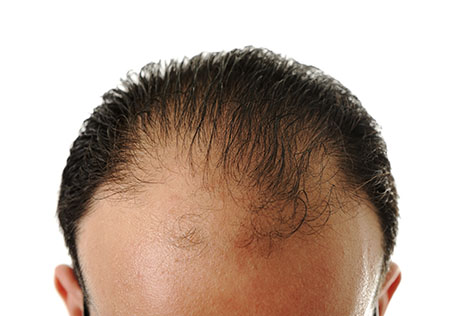Daily Insights Hub
Your go-to source for the latest news and information.
Hair Today, Gone Tomorrow: Understanding the Whys of Hair Loss
Discover the surprising causes of hair loss and unlock secrets to regrowth in our engaging guide! Don’t let your hair fade away!
The Science Behind Hair Loss: Common Causes and Solutions
The science behind hair loss is a multifaceted issue influenced by various factors including genetics, hormones, and environmental conditions. According to the American Academy of Dermatology, hereditary conditions like androgenetic alopecia (commonly known as male or female pattern baldness) are significant contributors. This condition is often exacerbated by hormonal changes associated with age, pregnancy, or menopause. Additionally, stress and underlying health issues such as thyroid disorders or autoimmune diseases can trigger temporary or permanent hair loss.
Fortunately, there are several solutions available to combat hair loss. For patients interested in medical treatments, options like minoxidil and finasteride have shown promise in promoting hair growth. Lifestyle changes, including a balanced diet rich in vitamins and minerals, can also support scalp health. Regular exercise and managing stress are vital, as they may improve overall well-being and hair health. For a deeper understanding of treatment options, consult resources like the WebMD guide on hair loss.

Is Stress Causing Your Hair Loss? Understanding the Connection
Is Stress Causing Your Hair Loss? Understanding the connection between stress and hair loss is essential for anyone experiencing unexpected thinning or shedding. Research indicates that stress can trigger various types of hair loss, such as telogen effluvium, where hair follicles enter a resting phase and subsequently shed. This condition often arises after traumatic events or prolonged periods of stress, highlighting the significant link between our mental state and physical health.
Moreover, the relationship between stress and hair loss involves complex biological mechanisms. Stress hormones, particularly cortisol, can disrupt the hair growth cycle and impact the health of hair follicles. Additionally, factors like poor nutrition, lack of sleep, and unhealthy lifestyle choices often accompany stress, further exacerbating hair loss. For more information on how to manage stress and its effects, consider exploring this comprehensive guide that offers practical tips to combat stress and promote healthier hair growth.
Myths and Facts About Hair Loss: What You Need to Know
The world of hair loss is riddled with misconceptions and myths that can mislead those seeking solutions. One prevalent myth is that wearing hats can cause hair loss. In reality, studies have shown that hair follicles do not suffocate due to headwear. Another common misconception is that only men experience hair loss; however, nearly 40% of women experience visible hair loss at some point in their lives, debunking this myth. Understanding these facts is essential for both preventive measures and treatment options.
Another critical aspect of hair loss involves the misconception about dietary influences. While some believe that specific diets can trigger hair loss, the truth is more nuanced. Nutritional deficiencies can lead to hair thinning; therefore, a balanced diet is crucial for maintaining hair health. Research indicates that vitamins such as biotin, iron, and zinc play significant roles in hair growth. Thus, fueling your body with nutrients is vital for sustaining healthy hair and preventing loss.